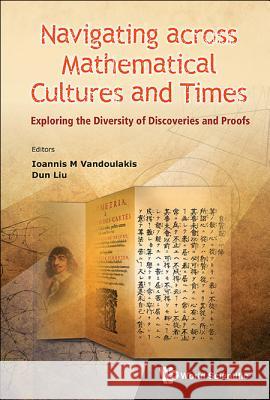Navigating Across Mathematical Cultures and Times: Exploring the Diversity of Discoveries and Proofs » książka
Navigating Across Mathematical Cultures and Times: Exploring the Diversity of Discoveries and Proofs
ISBN-13: 9789814689366 / Angielski / Twarda / 2020 / 600 str.
This volume explores how mathematical propositions are discovered, how they are demonstrated in various mathematical cultures — ancient Greece, classical Islam, medieval and modern Europe, India, China, and pre-modern Japan — and how they are shaped in texts and stylistic traditions.The geographic range is not restricted simply to Europe and the method of demonstration is not limited to the axiomatic method, which is thought to have emerged in ancient Greece. Topics of the discussions include the visual and axiomatic modes of reasoning in ancient Greece, algebraic demonstrations in classical Islam, algorithmic procedures in India and China, demonstrations and counter-arguments in mathematical analysis in modern Europe, and reasoning by induction in ancient Greece and pre-modern Japanese mathematics (Wasan). The studies also extend to arguments and demonstrations beyond 'pure mathematics' in the field of mathematical sciences, e.g., hydrostatics, optics, etc.; and include discussions of philosophical and methodological views on demonstration and the nature of mathematical objects, as well as comparative approaches to proof and demonstration in Eastern and Western mathematics.This unique volume is an up-to-date essential resource for historians and philosophers of mathematics. It is also suitable reading for specialists in mathematics education and comparative East-West studies, and dedicated to the topics of discoveries and proofs in a range of historical and cultural settings.











